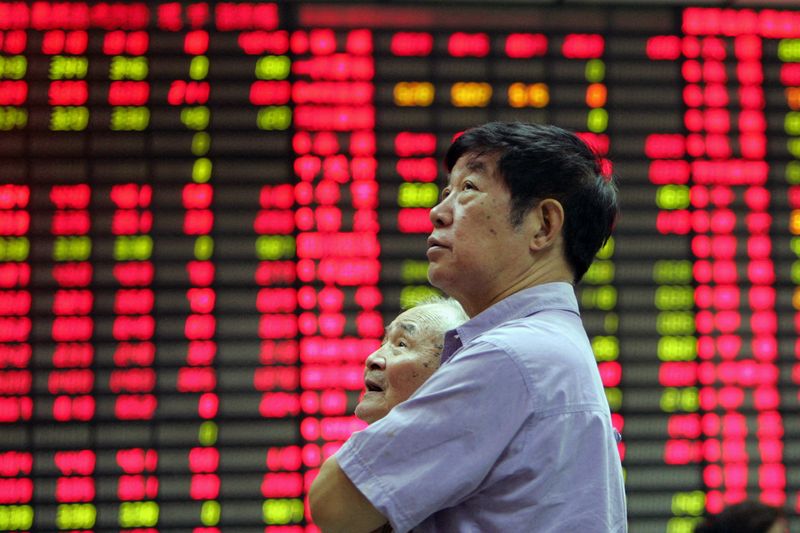By Gaurav Dogra
(Reuters) - Foreign investors pivoted to net selling of Asian equities in January, influenced by a reassessment of the cooling U.S. economy and anticipation of slower and later than expected rate cuts in 2024.
This change in investor behavior comes after two months of substantial buying in November and December 2023, with stock exchanges data showing a combined net sale of $779 million in India, Thailand, Taiwan, South Korea, the Philippines, Vietnam, and Indonesia.
Yeap Jun Rong, a market strategist at IG, said these outflows were more indicative of strategic repositioning or profit-taking, rather than a fundamental shift in the broader risk environment.
The MSCI Asia-Pacific index shed about 1.7% last month after having rallied a combined 13.4% in the previous two months through December.
Indian equities faced the largest foreign outflow among regional peers, of about $3.1 billion on a net basis last month, compared with about $7.94 billion worth of net inflows in December.
"In India, we think FII selling was largely driven by some profit taking amid concerns around stretched absolute and relative valuations and weaker-than-expected results of some large cap names," said Chetan Seth, Asia-Pacific Equity Strategist at Nomura.
Cross-border investors also withdrew about $871 million from Thai equities after a marginal $5 million worth of net purchase a month ago.
In contrast, South Korean stocks secured foreign capital for a third successive month, worth about $2.26 billion, while Indonesian and Taiwanese stocks received $535 million and $267 million respectively.

Some analysts remained optimistic about the region's prospects, citing factors like the global chip cycle recovery and potential economic soft landing in the United States.
"If sentiment towards China eventually recovers, that may end up lifting all boats in Asia as the overall sentiment towards EM as an asset class should also get a boost," Nomura's Seth said.